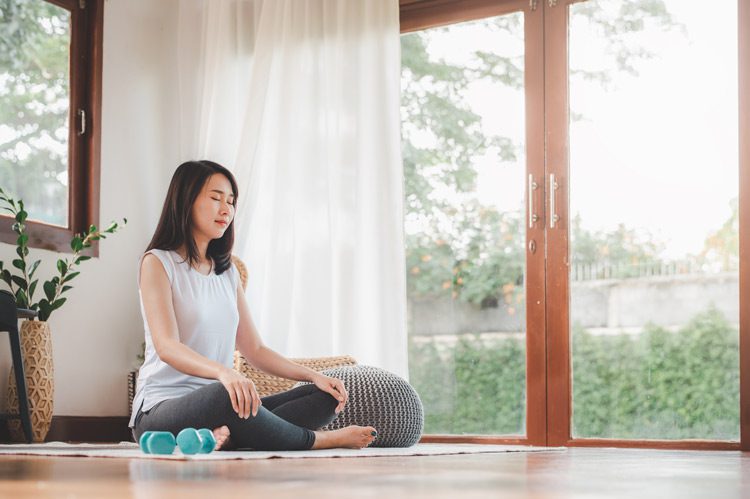What Are Anxiety Disorders?
A little bit of stress and worry can motivate us to study for a test, drive safely, or pay careful attention to small children under our care. In the right proportion, anxious feelings can be helpful to our well-being. When those same feelings become too intense, however, they can cause a variety of problems that may reduce a person’s quality of life. When a mental health condition starts to cause limitations on a person’s daily life, this is generally when a disorder is diagnosed.
According to the National Alliance on Mental Illness (NAMI), anxiety disorders are the most common form of mental illness in the United States. Nearly one in five adults struggle with some form of anxiety disorder. Around seven percent of children under age 18 are impacted.
Symptoms
Because there are different types of anxiety disorders and because human beings are unique, anxiety may not look the same for everyone. According to NAMI, some of the most common symptoms include:
Physical:
- Pounding/racing heart
- Shortness of breath
- Sweating
- Tremors or twitching
- Headaches and stomach problems
- Trouble sleeping
Emotional:
- Feelings of fear, dread or apprehension
- Jumpiness
- Feeling restless or irritable
- Expecting the worst to happen
Varieties of Anxiety
There are several different types of anxiety. The way a person’s symptoms are triggered and how their symptoms manifest may be determined by the type of anxiety they experience. NAMI lists these among the most common variations:
- Generalized Anxiety Disorder – this version often involves the person worrying about things in their everyday life. They may become nauseated or develop a headache from the stress of thinking about things that they experience at home, work, or school. It may be difficult for them to focus enough to get things done.
- Social Anxiety Disorder – people with this type of anxiety tend to be triggered by being in group settings and worry about being humiliated in that setting. They may not be able to talk in class or take part in group conversations. They may have panic attacks, not just from being in a social setting, but from worrying about future social situations.
- Panic Disorder – unlike social anxiety, panic disorder doesn’t need a triggering event to cause a panic attack. A person may experience sudden feelings of terror with no advance warning. The panic attacks experienced by people with this condition can be so intense that they are sometimes mistaken for heart attacks.
- Phobias – the phobias that rise to the level of being an anxiety disorder are extremely intense, resulting in strong and often irrational fear. A person may have many fears and triggers and lose immense amounts of time and energy attempting to manage them.
Other types of anxiety include agoraphobia, obsessive-compulsive disorder (OCD), separation anxiety, selective mutism, and medication-induced anxiety.
Causes of Anxiety Disorders
WebMD lists a number of different things that can lead to anxiety disorders:
- Having other mental health conditions
- Childhood trauma
- Difficult life events
- Severe or chronic physical health issues
- Substance abuse
- Low self-esteem
How Anxiety Is Diagnosed
If you are concerned that you might have an anxiety disorder, you should reach out to your primary care doctor, who can do a preliminary screening to determine if your symptoms might have a medical cause. If there is no apparent physical cause for your anxiety, your doctor may then refer you to a mental health specialist.
Ways to Manage Anxiety
While every type of anxiety is a little different, and the people who experience the conditions may respond differently to each treatment, some methods are commonly used to address the conditions:
- Lifestyle changes – getting adequate exercise and avoiding caffeine and other drugs that trigger anxiety symptoms are recommended.
- Mind-body techniques – activities like meditation, yoga and grounding exercises can be helpful. It is ideal to try grounding techniques when anxiety isn’t intense, so that when the anxiety is greater, you are already familiar and comfortable with the techniques.
- Therapy – talking to a trained counselor can help with processing feelings and learning coping skills. Cognitive behavioral therapy (CBT) is one of the most common modalities used for treating anxiety and can help people think about things in a different way that doesn’t lead to anxiety.
- Medication – this frequently includes benzodiazepines, which are taken as needed, or daily doses of antidepressants, which can help to stabilize anxiety. Other medications may be used, depending on the specific situation.
It is generally recommended that people with anxiety utilize a combination of treatment methods for best results. Solely using medication or relying on lifestyle changes to the exclusion of all other options can make it very difficult to get or keep anxiety under control.
We Can Help
If you or someone you love suffers from an anxiety disorder, Highland Hospital can help. Our professional, compassionate staff will work with you to find the treatment that works best for your situation.






